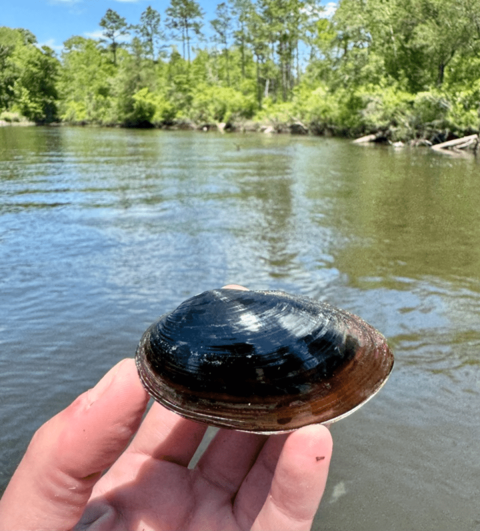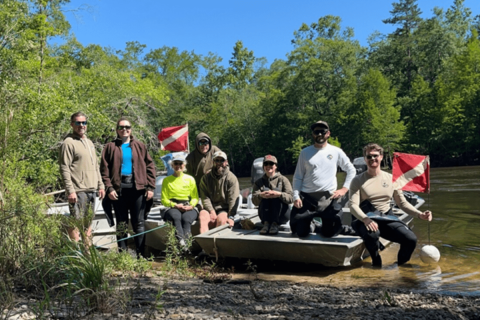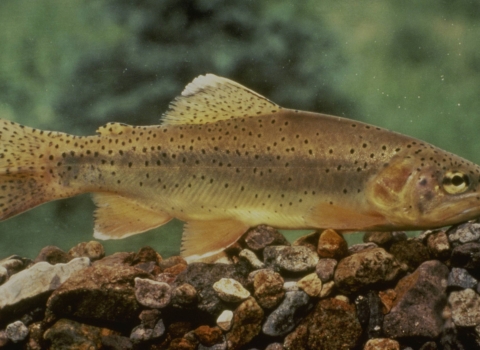It's a beautiful spring day on Eglin Air Force Base; the sun is shining, the birds are singing, a sturgeon leaps from the river with a splash, excavators prepare to break ground on the riverbank, and that's when the SCUBA divers show up. Recently, the U.S. Fish and Wildlife Service (USFWS) Region 4 Dive Team completed a freshwater mussel removal and translocation in advance of the riverbank restoration at Metts Bluff on Eglin Air Force Base in Florida. Th project, funded and contracted by the Florida Fish and Wildlife Conservation Commission, will armor the riverbank with natural stream restoration techniques to stabilize over 1,500 feet of riverbank and prevent further erosion into the Yellow River.
The mussel removal and relocation were conducted to support the Section 7 Section 7
Section 7 Consultation
The Endangered Species Act (ESA) directs all Federal agencies to work to conserve endangered and threatened species and to use their authorities to further the purposes of the Act. Section 7 of the Act, called "Interagency Cooperation," is the mechanism by which Federal agencies ensure the actions they take, including those they fund or authorize, do not jeopardize the existence of any listed species.
Learn more about Section 7 consultation for the project. Based on sonar habitat mapping in the project area and five years of mussel monitoring data from the Yellow River, potential take for the restoration project was estimated six to eleven federally Threatened Southern sandshell (Hamiota australis), and three federally Threatened Narrow pigtoe (Fusconaia escambia) mussels. Ten divers from three states (Alabama, Florida, and Mississippi), representing Ecological Services, Fish and Aquatic Conservation, and the Florida Air Force Partnership, collected and relocated more than 250 mussels over two days from the project area. Divers collected six Southern
sandshell and five Narrow pigtoe from the project site, supporting the Section 7 take statement surprisingly well. The Metts Bluff project is one of three riverbank stabilization projects planned for the Eglin Air Force Base portion of the Yellow River in the upcoming years, and the Region 4 Dive Team will be there to ensure mussels are relocated prior to each project.
Freshwater mussels are vital indicators of ecosystem health due to their sensitivity to water quality and habitat changes. These mussels filter water, thus improving its quality and providing essential services to aquatic ecosystems by creating a cleaner and more balanced environment for other species. Habitat restoration projects, like those at Eglin Air Force Base, are crucial for preserving these species and ensuring the stability of riverbanks, which prevents erosion and protects water quality. These efforts not only help maintain biodiversity but also support the resilience of aquatic habitats against the impacts of climate change climate change
Climate change includes both global warming driven by human-induced emissions of greenhouse gases and the resulting large-scale shifts in weather patterns. Though there have been previous periods of climatic change, since the mid-20th century humans have had an unprecedented impact on Earth's climate system and caused change on a global scale.
Learn more about climate change and human activities. Partnerships between organizations, including the USFWS, Florida Fish and Wildlife Conservation Commission, and military bases, leverage resources and expertise, enhancing the success of conservation efforts and fostering a collaborative approach to environmental stewardship.







